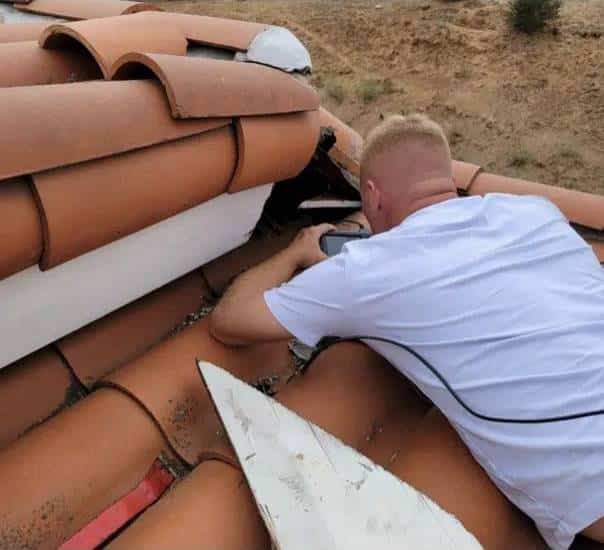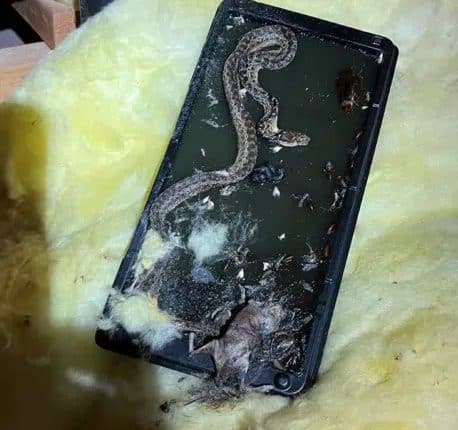
Should Wet Insulation Be Replaced?
Insulation is key in keeping your home comfortable and reducing energy usage. But it also faces various threats, with moisture being chief among them. Wet
Fill out the form or call at
Most attics are constructed with the exclusive purpose of framing your home’s ceiling. Before you decide to turn your attic into storage space, you need an attic professional to inspect the attic joists to ensure it can handle decking. Many homes’ attic joists are not constructed to hold anything more than ceiling drywall.
Attic joists that are 2 X 6s or 2 X 8s are not adequate to support flooring. Even if the joists are larger, they still might be unable to support the additional weight. A technician from Attic Projects can inspect your home’s attic joists to see if they are constructed to hold additional weight. If they cannot support more weight, the technician can add structural support and bring it up to code to support more weight. Before using your attic for anything – contact an attic professional.
If you aren’t 100% certain that you have a rodent or rat infestation, but you are afraid to check your attic or crawl space, here are some signs to look out for:
Pests and rodents can squeeze themselves into the tiniest holes, cracks, or crevices in your home. All holes and cracks, no matter how small, is an invitation for the critters to make a home in your attic.
They can climb trees that are near your attic, but also enter through other ways such as holes in your roof, through your garage and into the walls where they can nest in your warm attic insulation. Getting your attic rodent-proofed is the only way to keep them out permanently.
Attics are warm and convenient for rodents and other animals because they are attempting to escape the cold. That box of Christmas decorations is the best and coziest place to curl up into. Even worse, they will crawl into your fuzzy, warm insulation and make a nest for their family! This is why a professional rodent removal service is necessary to locate all points of entry and rodent proof your attic.
Insulation is the perfect place for rodents to breed in, as attics are safe havens for pests. It’s dark, quiet, and people rarely are in it. Regardless of why rodents and pests love attics, Attic Projects remove the waste and damage that they leave behind after rodent-proofing, making sure that the rodent problem is eliminated for good.


If you think a tiny little mouse is too cute and won’t do too much damage to your attic, you are wrong. The little rodents can do thousands of dollars worth of damage to your attic or home.
They are chewers and will chew through any and everything. From drywall to electrical wires to plastic containers, our professionals have seen it all! If you have chewed electrical wires, they can be an extreme fire hazard, and with all that insulation in attics mixed with frayed wires, can be extremely frightening!
Once there is one hole that rodents enter though, more and more will enter, as well as water. This could lead to mold issues.
Rodents also urinate and defecate in their living areas — in this case, your attic — and their waste is extremely toxic for humans.
Most times if there is a rodent infestation, you will need to replace all the insulation in your attic. That’s why pest control is a crucial part of keeping your home intact.
Rodents can carry harmful bacteria, dangerous diseases, and allergens that cause respiratory issues and illnesses. If you find rodents in your home, you need to get the problem eradicated right away!
Rodents and their infectious diseases should not be taken lightly. The diseases can lead to fatal respiratory problems for humans. Mice and rats can carry and spread 35+ diseases. Whether you are handling alive or dead rodents, feces, urine, bites, or saliva, you have to be extremely careful and cautious — which is why it should be left to the professionals.
Rodents that are infected, can infect people with fleas, mites, and ticks! Some even carry ringworms and tapeworms that people can contract.
The most common diseases that are transmitted include:

Although mice and other small animals can seem cute, they are hazardous to your health.
Removing harmful decaying rodents, or live rodents, without the proper equipment can be harmful. Rodent removal should not be your Saturday DIY project. Poisons and traps are only temporary and won’t prevent the rodents from returning.
Only professionals can find every point of entry and seal them for good. Our rodent removal and rodent-proofing specialists use state-of-the-art cleaners and sprays that will sanitize the germs and bacteria that the rodents carried into your home and left behind in their urine and feces. When you are suffering from a rodent infestation, ridding your home of the rodents yourself is strongly recommended against.
Most homeowners will call exterminators or use traps or poisons to remove rodents, but that won’t remove the source of the issue. If you think you have unwanted rodents in your home or attic, call the Attic Projects’ professionals today to rodent-proof for you!
Rodent-proofing your home begins with a thorough inspection of your attic to identify all of the points of entry that the rodents use to get into your home. We will seal the areas off so that no rodent or animal will get access to your home again.
When our professionals make your attic rodent-proof, they also remove all damaged insulation and inspect every wire, piece of drywall, and any other contaminated area that could have been chewed or soiled. Our team employs only innovative rodent-proofing techniques to make sure your attic never has another rodent living in it. Rat-proofing and mouse-proofing are essential to keeping a healthy home, and we’re here to get the job done.
Attic Cleaning | Attic Sanitation | Mold Remediation | Attic Insulation Installation | Attic Insulation Removal | Radiant Barrier Insulation | Air Duct Sealant & Repair | Rodent Proofing & Removal | Attic Remodeling & Storage | Attic Stairs & Doors
Our licensed and bonded professionals will rodent proof your attic and home while making sure every entry point is sealed. You can sleep peacefully while knowing your home is in great hands with our specialists.
Contact us today and schedule a rodent-proofing appointment.

Crawl Space Cleanup | Crawl Space Insulation Installation | Crawl Space Insulation Removal | Vapor Barrier | Crawl Space Doors
Orange County | Everett | Bellingham | San Diego | Mt. Vernon | Tacoma | Seattle


To achieve a permanent rodent-proofing solution for your attic, you should hire a professional because these experts can identify and correct potential entry points that an untrained eye may overlook. If every vulnerability is not properly sealed, rats can easily re-enter a space if they can find small openings.
Our professionals at Attic Projects employ comprehensive strategies, such as sealing gaps, installing protective barriers, and implementing exclusion methods to ensure rodents are not only removed but also prevented from returning.
Common initial signs of a rodent infestation include droppings, gnaw marks on wires or wood, and strange noises such as scratching or scampering. Unpleasant odors and nests made from shredded materials also indicate a rodent presence. If you recognize these signs early, you can prevent further infestation and damage.
Rodent-proofing, when conducted by reputable professionals, is generally safe for your family and pets. Our professionals at Attic Projects use methods designed to prevent rodents from entering the home without harming residents. Non-toxic materials and humane traps may be employed during rodent removal, ensuring that the process is environmentally friendly and does not introduce hazardous substances into your living space.
However, it’s important to communicate any specific concerns or sensitivities with our professionals beforehand so we can tailor our approach appropriately.
While our rodent-proofing is highly effective, as our team employs only innovative rodent-proofing techniques to ensure your attic never has another rodent living in it, routine inspections and maintenance are advised to ensure ongoing effectiveness. Weather conditions, wear, and tear, or new vulnerabilities may arise over time, making it essential to address any potential issues promptly.
Contacting our team at Attic Projects to periodically inspect and reinforce rodent-proofing measures can provide continued protection against infestations and secure the long-term integrity of your attic. This service is include in our standard 10 year warranty. Regular maintenance can also catch and address any new rodent activity before it becomes a larger problem.
We doubt that you’ll need us again, but if you do — we got you covered.

*Insulation materials qualify for our 20 Year Warranty

We doubt that you’ll need us again, but if you do — we got you covered.
*Insulation materials qualify for our 20 Year Warranty
Rodents are a nightmare for any homeowner. They can lower the value of your home by causing serious damage, foul odors, and extensively unsanitary conditions. They also pose a significant health risk to you and your family by spreading disease and causing illness. The last thing you want is to waste your time removing rodents, only to have them move right back in. At Attic Projects, we not only humanely remove the rodents and pests from your home, but we also rodent-proof your home so they can’t come back. In order to keep the pests and rodents out permanently, you have to close up every entry point that they may squeeze into. Call Attic Projects today to get your free estimate.
Fill out the form or call us at

Insulation is key in keeping your home comfortable and reducing energy usage. But it also faces various threats, with moisture being chief among them. Wet

Summer may be a time of refreshing swims and exciting road trips, but the season also brings many challenges for homeowners. In particularly humid climates,

HISTORY OF FIBERGLASS INSULATION Fiberglass insulation, a material widely used in modern construction, has a history that dates back to the 1930s. The Owens Corning
